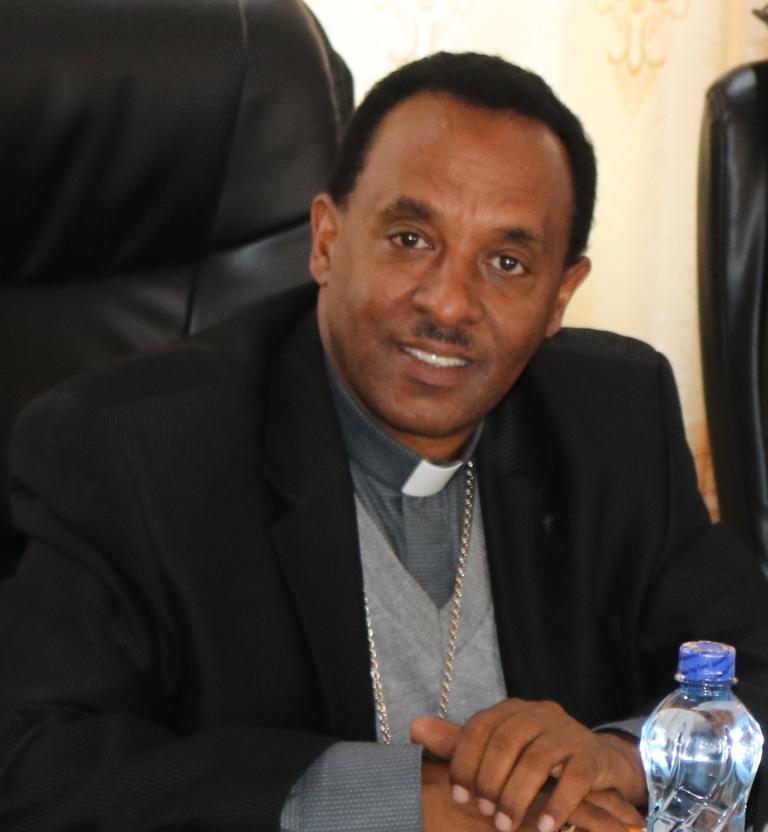ETHIOPIA: Catholic Church Finally Recognized by the State

Rt. Rev. Markos Ghebremedhin, C.M., Apostolic Vicar of Jima Bonga Vicariate
The Catholic Church in Ethiopia has been fully recognized by the State, a development that Rt. Rev. Markos Ghebremedhin, C.M., Apostolic Vicar of Jima Bonga Vicariate attributes to their hosting the AMECEA 19th Plenary Assembly in July Last year by the country.
“We signed an agreement with the Government that the Catholic Church is officially recognised as a Church in the state. Before, we were not recognised and every time we were giving services we had to renew a permit; this is one big progress, a fruit of the AMECEA Plenary Assembly in Addis,” Bishop Markos explained.
Speaking to AMECEA Online News in Nairobi where he was attending a meeting for Presidents of Conferences in AMECEA region who will be going to Rome for the Summit on Child Protection, Bishop Markos said that in addition to being officially recognized, the relation between Government and the Catholic Church has greatly improved. Among the indicators of improved cordial relationship is the issue of work permit for the Religious working in Ethiopia.
“Previously, expatriate missionaries were required to renew their work permit annually; now the renewal will be done after every five years. In addition, the Government has also promised that expatriate missionaries who serve longer in Ethiopia, will be given permanent resident permit, this does not mean that they will be citizens but rather they will have the permanent residential permit, which will allow them to serve in the country for as long as they wish.”
He further explained that the Plenary Assembly which was hosted by Ethiopia for the first time in the history of AMECEA, left a very big impression not only among the Catholic faithful but among all people in Ethiopia. Additionally, it left behind a more united, strong and confident Church.
“The Church is moving forward with the implementation of the Plenary Assembly Resolutions. This has created a lot of confidence among the people in their sense of belonging, more specially the Youth,” Bishop Marcos explained.
“Financially our Christians took the challenge to make personal contributions, and they did a tremendous job. Their coming together from the dioceses for the ceremony, and everybody’s active participation has left a good impression about the Plenary Assembly. I can confidently say that the AMECEA Plenary Assembly in Addis added a great value to the Catholic Church in Ethiopia; it was a great opportunity for the Church.”
Bishop Markos indicated that the dinner at the Presidential Palace, which was organized by the State for the AMECEA Bishops during the Plenary Assembly, was in appreciation for what the Church is doing in the horn of Africa, particularly in Ethiopia.
“Although we might be small in terms of population, we really don’t feel it because we have a sense of belonging to the Universal Catholic Church. Our contribution in the development agenda of the country through education, health care and social services makes us very popular and relevant among the people we serve. The Plenary Assembly helped us to make known the spiritual side of the Catholic Church, which was not known by many in Ethiopia.”
∽End∽
By Pamela Adinda, AMECEA Online News


